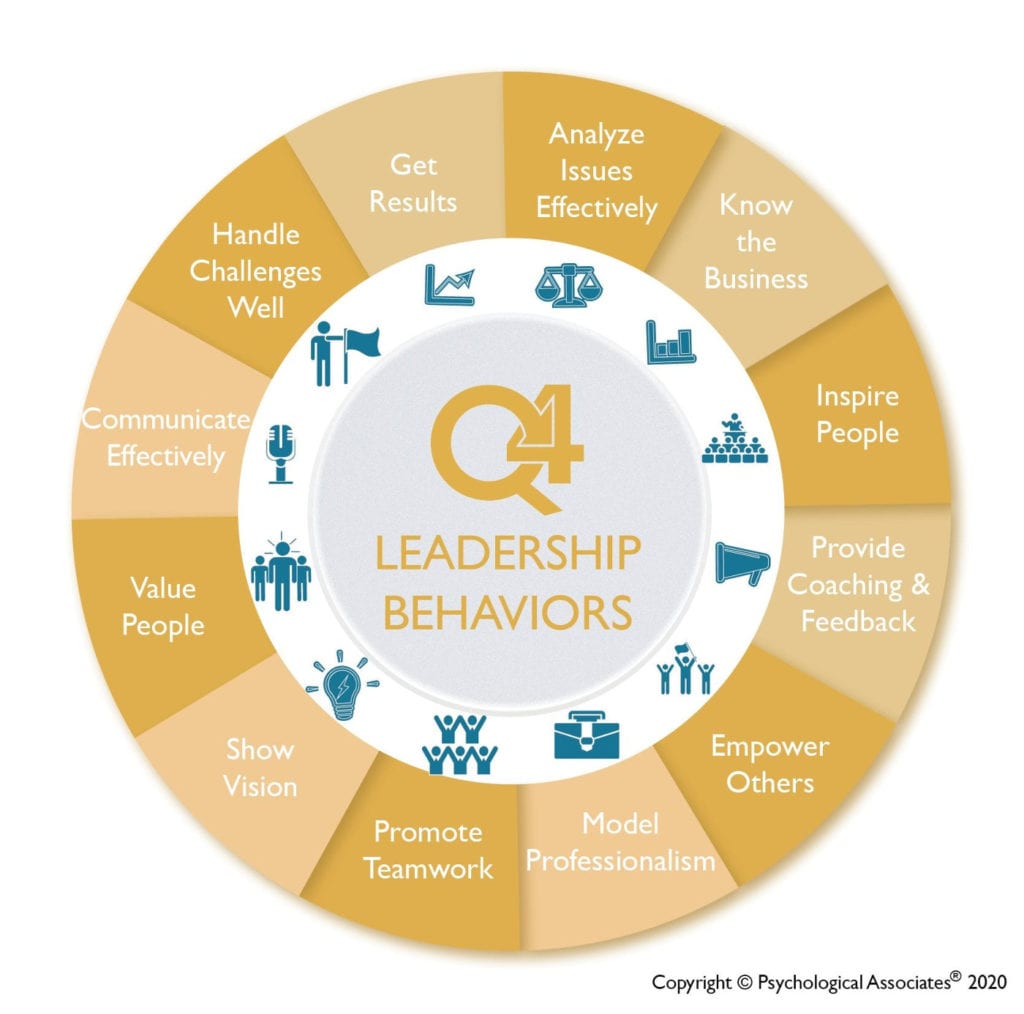There’s no doubt that some executives fail and some succeed. Indeed, some achieve wild success — while others are plagued by mistakes and failures. So what sorts of behaviors separate the successful executives from the rest? Likewise, what do less successful executives fail to do consistently — what behaviors might explain their failures?
Surprisingly, the behaviors most correlated with success have little to do with personal habits (getting up early in the morning, taking classes, napping after lunch, etc.) or underlying attitudes (staying positive, a passion for winning, etc.).
How do we know this? Over a period of several decades, our psychologists have used a number of assessment tools to help clients hire and develop their executive talent. Based upon that extensive history, we’ve identified the behaviors that we believe best predict executive success. We’ve found that when we test for these 12 competencies, organizations get the best feel for their executives and end up making better leadership selection and promotion decisions.
So without further ado: Here are the 12 leadership competencies most closely tied with executive success.

12 Competencies of Executive Behavior
- They analyze issues effectively. Successful executives are able to solve problems with speed, objectivity, and creativity. They traffic in information and facts, not illusion and politics.
- They know the business. Successful executives know their own business and industry, including trends and events outside of the organization. This fuels better decision-making and better organization of resources.
- They inspire people. Commitment, passion, energy, charisma — successful executives seem to have these qualities in abundant supply. Inspiration need not be a lofty ideal. Sometimes setting a good example and continually working to improve oneself is enough to motivate others.
- They provide coaching and feedback. Empowerment of others cannot happen, though, without a sufficient amount of coaching and feedback. Successful executives work with their direct reports in a constructive way to help them develop their full potential.
- They empower others. Successful executives are skilled delegators. Executives who try to do everything themselves achieve only limited success.
- They model professionalism. Successful executives maintain credibility by demonstrating professional behavior — especially when they might be tempted to act otherwise. Professional behavior garners respect and, sometimes, admiration.
- They work well in teams — indeed, they promote teamwork. Organizations now promote teamwork and collaboration a great deal more than they did in the past. With corporate culture’s renewed emphasis on teamwork, executives who can work well with teams have become more valuable. They communicate goals, share knowledge, support others, and respect everyone’s talents.
- They show vision. While it’s certainly important to be concerned with current events and daily operations, it’s also important to have a long-term vision. Successful executives foresee future opportunities, develop plans, and communicate the vision clearly.
- They value people. Respect and concern are as important as professionalism. Successful executives tend to be sensitive to individuals’ needs, and to value people in general.
- They communicate effectively. Successful executives share information in a way that is understood by others — and are interested in learning what others have to say.
- They handle challenges well. If you’re reading this, we probably don’t have to make the case that change is part of the landscape, and that being able to manage change is a valuable skill. When executives face a crisis, flexibility, perseverance, and a calm demeanor are all attributes that contribute to long-term success.
- They get results. It sounds obvious: What defines success, other than results? The important thing to keep in mind is that successful executives bring about the right kinds of results. They distinguish between important and unimportant tasks, seize opportunities, and tackle problems head-on.
All of these behavioral tendencies can be evaluated and measured by our psychologists. If you are interested in understanding how well you or a member of your organization model these behaviors, consider having a 360° review with our Q4 Leader program. You will receive feedback and evaluations of your day-to-day behavior from your boss, peers, direct reports, and others, directly aligned with these core competencies.
If you enjoyed this, check out additional posts on assessment, leadership, the Q4 Leader program, Q4 Competencies, and Surveys













